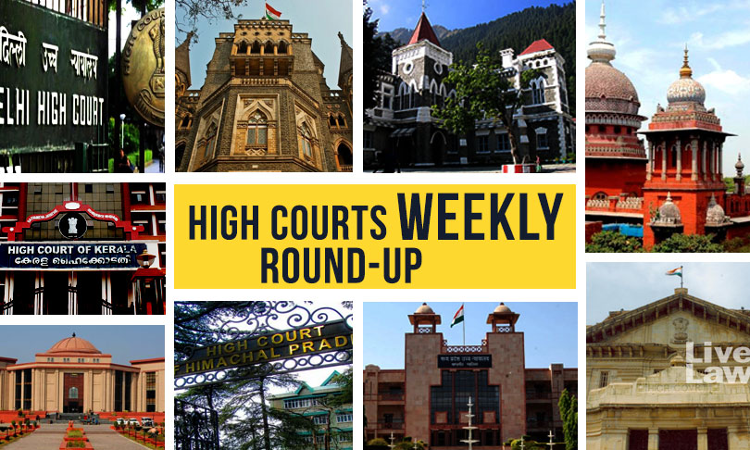- Home
- /
- News Updates
- /
- All High Courts Weekly Round-Up:...
All High Courts Weekly Round-Up: May 16 - May 22, 2022
Shrutika
25 May 2022 2:15 PM IST
Allahabad High Court NOMINAL INDEX Manvir v. State 2022 LiveLaw (AB) 242 Preeti Malik v. State Of U.P. And 4 Others 2022 LiveLaw (AB) 243 Anwar Ali v. State Of U.P. And Anr 2022 LiveLaw (AB) 244 Rajneesh Kumar Pandey v. Union of India and others 2022 LiveLaw (AB) 245 Dashrath Singh v. State of U.P. and Others 2022 LiveLaw (AB) 246 Ankita Dikshit v. State Of U.P. And Anr....
Next Story



